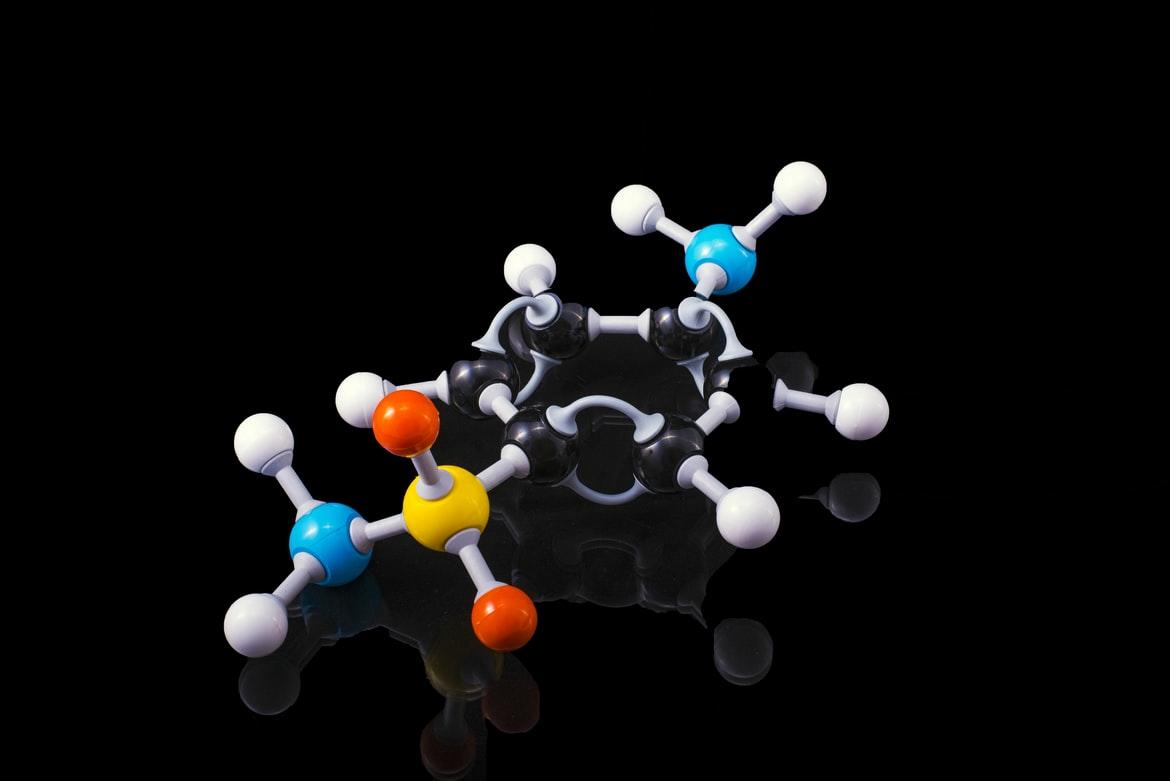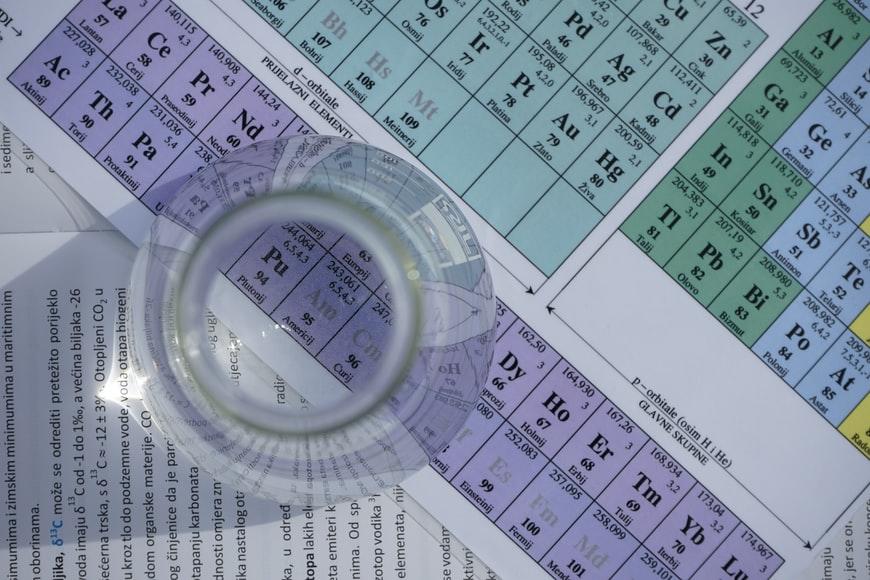The functions of chemistry can be seen all around you. So everything that you contemplate, either natural or artificial, operates or exists due to the findings we’ve made in science.
That’s how chemistry works. It is not easy to overstate the importance of chemistry in our life. This is especially true since we are created out of the atoms or molecules that the discipline studies.
The way we see, move, and even breathe can be attributed to only one topic, Chemistry.
If you are sitting in your chemistry class wondering how much you despise it, how much you can’t stand it, how dull or worthless it is, remember that nothing is more essential to the universe than what you’ll be learning in it.

Chemistry may appear complicated and scary at first.
However, after you learn chemistry and grasp a few fundamentals, you’ll be well on your path to exploring and comprehending the realm of chemistry.
Want to get better at college chemistry? This article will guide you through everything you need to know about chemistry, how you can learn it, and how it can benefit you in your daily life.

What Is Chemistry?
Before jumping in, let’s dive into a bit of detail about chemistry. Chemistry is a field of physical science that studies the qualities of substances and the changes they go through, and the fundamental laws that govern these changes.
The study of matter and chemical interactions between substances in chemistry. Chemistry is also concerned with matter’s structure, composition, and characteristics.
And matter is defined as anything in the universe that has mass and occupies space. Because it connects physics with other sciences like biology and geology. Chemistry is frequently referred to as “the core science.”
Moreover, they also study the natural environment while simultaneously attempting to enhance it via molecular alteration.
Hence, chemistry is one of the underpinnings of contemporary industrial economies since everything exists in a chemical form.
Chemical discoveries have resulted in significant benefits for our planet; some examples of improvements made through chemistry include:
- New therapies that cure disease
- New resources that increase safety and make us more robust
- New energy sources that allow new operations are all
Furthermore, this subject isn’t just about a single thing. There are several chemistry topics that you learn when studying high school chemistry.
What Is The History Of Chemistry?
When Aristotle identified the four components of water, fire, earth, and air in Classical Greece, a fundamental chemical theory was born.
However, scientists like Antoine Lavoisier (1743-1794) and Robert Boyle (1627-1691) did not begin to remodel the ancient chemical practices into a rigorous scientific study till the 17th and 18th centuries.

Being a natural science, chemistry offers scientists with knowledge of other physical disciplines and sophisticated analysis tools for engineering disciplines.
In addition, scientists are just now beginning to comprehend how different levels of organization work. The biochemical activities of the human body, for example, are the foundation of contemporary medicine.

What Are The Advantages Of Studying And Teaching Chemistry?
Studying chemistry has numerous benefits. Even if you take a general chemistry course in high school or college, it can offer you several advantages, especially when moving towards advanced levels.
It Is A Broad Field
Since chemistry is such a vast topic of study, you’ll have a plethora of specialization possibilities once you’ve completed your bachelor’s degree.
Options are crucial since they increase your chances of discovering your strengths and keep things interesting. You can either opt for general chemistry or take online organic chemistry courses.
Even though both courses have many things in common, they differ enough to deserve independence.
However, in most circumstances, having a foundation in one prepares you to pursue another at an advanced level.
This is especially crucial if you wish to change careers because it will help you prepare for chemistry-related fields and comprehend them better.
Organic, Biochemistry, Analytical, Physical, Inorganic are the five fields of chemistry that have historically been divided into five groups.
But this isn’t the end of the story. Other chemistry-related fields draw on a mix of the areas mentioned above.
Polymer chemistry, nuclear chemistry, environmental chemistry, bioinorganic chemistry, nanochemistry, biophysical chemistry, and various other fields are examples.
Provides Several Career Opportunities
Chemistry’s breadth and use imply a plethora of market potential in the discipline. As a chemistry graduate, all you need to do is master some entrepreneurial skills to help you market your chemical expertise.
With any luck, you will gain great cash bonuses while also creating jobs for others, therefore aiding the country’s environmental and economic progress.
And if you’re a chemistry teacher, you can set whatever rates you think you deserve and earn for every minute you teach.
The commercial side of chemistry is so significant that it is called Chemistry Entrepreneurship. As a result, authorities worldwide have recognized the value of economic science courses and have implemented new regulations that encourage entrepreneurship, innovation, and discovery.
Helps Live A Safer Life
A solid understanding of chemistry will keep you, your family, and your friends safe. For example, you’ll be able to tell which cleaning chemicals are hazardous if you store them together.
You’ll also be aware of which compounds are dangerous when mixed, as well as the effects of such substances on people and the ecosystem.
It also offers you a greater understanding of handling chemical items, such as where to keep them and how to discard them. Some of the information may be easily shared with family and friends and even taught to others in the community.
Learning Chemistry Is A Fun Process
Chemistry is a fascinating area where you can do much research and have much fun at the same time.
Students of chemistry, for example, typically begin with the theoretical parts of the subject, such as learning how to utilize the periodic table and comprehend the data contained within. They can also answer simple chemical reaction equations.
While the beginning stages of Chemistry are conceptual and maybe uninteresting for several students and chemistry tutors, it rapidly becomes fascinating if you visit the lab or use visual material to illustrate ideas and processes.
Students find it simpler to grasp Chemistry since most of what happens may be explained using practical experiments.
Even if you’re a seasoned chemist working on a project, the procedure is always enjoyable since you’re continuously learning new things or improving on what you already know.
And as a tutor, not only is teaching chemistry a fun career prospect, it can also help you earn a lot.
Wide Variety Of Applications
The uses of Chemistry are diverse, which means better productivity and chances to generate money.
Moreover, since everything in our world is formed of matter, every modification in matter or comprehension of its characteristics needs the involvement of a chemist.
Chemistry is present in almost every element of human life. You can’t comprehend a subject that the Chemists haven’t studied, from healthcare to lifestyle, agribusiness to defense.
That implies you can’t compare it to subjects like Geography or History because they can’t be found everywhere.
One of the main elements that make Chemistry a fascinating topic of study is its broad application in various fields.
How To Learn Chemistry In College?
Chemistry is one of those subjects that you either like or despise. As a result, chemistry is typically not a mandatory course in high school but rather an elective.
On the other hand, most reputable universities need all bachelor students to take a minimum of one chemistry course to graduate.
If you want to work in medical, engineering, or a branch of natural science, you’ll almost certainly have to take at least one chemistry program before graduating.
For personalized guidance, consider reaching out to a san diego chemistry tutor who can offer tailored insights to navigate complex topics.
Unfortunately, for most people, the most common cause of chemistry difficulties is that students do not approach the subject properly.
We’ll look at some ideas and approaches to help you increase your skills to study and learn chemistry quickly.

In a typical learning method, students come to class, the chemistry teacher explains the content, elaborates on central themes, assigns further readings and tasks, and the session closes.
Students are then anticipated to go home and evaluate their lecture notes, finish class assignments, return to class the next week with any questions from the previous lesson, and be prepared to move on and start exploring fresh material and theories.
The difficulty with this technique is that it is ineffectual, especially when dealing with complex themes and content.
Coming to each class having previously read and understood the material given that day is the most excellent method to study chemistry.
One of the most successful ways for studying chemistry is to study your chemistry homework, articles, and information before each class.
Below is a list of tips you can use to study chemistry effectively.
Discover a comprehensive online chemistry class when you search for a tutor on Superprof.
Gain An Understanding Of The Topic
Like any other subject, chemistry has much fresh material to learn and memorize. There will be so much new material offered to you when you start studying chemistry that you will rapidly get overwhelmed if you try to recall every aspect. So first and foremost, concentrate on mastering essential principles.
After mastering the regulations, you may focus on memorizing the intricacies. However, you’ll also notice it is much simpler to learn anything else when you grasp chemistry principles and better understand the topics.
Take Notes
Attending class regularly and paying enough attention is essential, but it is insufficient. When studying chemistry, it’s critical to take understandable notes that can help you better comprehend the topics being taught.
For the following reasons, taking notes is especially important when studying chemistry. Practice Routinely
Practice is essential for learning and understanding chemistry. Therefore, completing practice questions, solving problems, and working formulae, among other things, should be a regular part of your study regimen.
If you want to master chemistry and stay on top of your game, you need to study it each day. Review and work on the practice problems contained on sample tests and issues encountered on past chemistry examinations to test your comprehension and knowledge of chemistry.
Use The Lab
There is no alternative for hands-on experience in learning and understanding chemistry, and there is no more excellent way to obtain this experience than through visiting chemical laboratories.
So take advantage of any opportunity to experiment in the lab that comes your way.
You will improve your knowledge and understanding of chemistry by working through chemistry issues and doing experiments in a practical scenario.
Study In Groups
Using a nicely organized study group to handle any complicated topic, including chemistry, is a great approach to succeed.
For example, chemistry students may form study groups to share their knowledge, discuss ideas, clarify complex concepts, educate what they’ve studied, share notes, prepare for examinations, and cover additional material.
Focus On Your Assignments
Chemistry is a subject that demands complete focus. Concentrating solely on your grade diverts attention away from mastering chemistry.
On the other hand, your grade will improve if you focus on mastering chemistry. There are no alternatives available. What matters at the end is what you have learned.
General Chemistry Vs. Organic Chemistry
When in university, students often feel confused about the differences between general chemistry and organic chemistry, making it difficult to choose a program.
Here is a list of things you will study in general Chemistry and in organic chemistry to help you decide what path to choose.
| General Chemistry | Organic Chemistry |
|---|---|
| Atomic structure | Molecular shapes, structural formulas, and hybridization |
| Periodic table | Alkanes, Alkenes, Alkynes, Alcohol |
| Compounds, moles, molar mass | Ethers, Epoxides |
| Chemical phases – solid, liquid, gas | Aldehydes, Ketones, Amines |
| Equilibrium, thermodynamics, kinetics | Carboxylic acids - derivatives |
| Acid-base reactions | Carbs, Amino Acids, Proteins |
| Redox reactions | Stereochemistry |
Want To Get Private Chemistry Tutors Through Superprof
Are you looking to attend or teach online chemistry courses in the US? Then, search for “chemistry tutors near me” to find a private chemistry tutor offering personalized lessons according to your educational level.
Taking in-person lessons can be difficult, especially when hundreds of students are in one class. And if you’re trying to become a chemistry teacher in the US, this problem persists.
Every student has different learning capabilities; hence some students might not understand complex concepts as quickly as others. In such cases, taking personalized lessons with a private tutor can be life-saving!
Superprof has millions of private tutors who offer in-person and online lessons tailored to your needs. The best thing about these lessons is that the first class is always free.
If you're based in New York and looking for specialized help, consider consulting a chemistry tutor nyc to further tailor your learning experience.
Hence, it is up to you whether you want to continue with the same tutor or shift to another one.
Summarize with AI:















